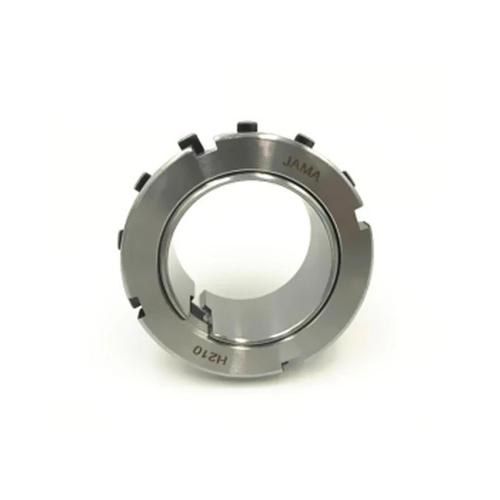Ultimate Guide to Custom Industrial Bearings for Heavy Machinery and Automation
Custom industrial bearings are specialized components designed to meet the unique demands of heavy machinery, automation systems, and high-load applications. Engineered for precision, durability, and efficiency, these bearings ensure optimal performance in industries like manufacturing, aerospace, and energy. By tailoring materials, dimensions, and lubrication, custom bearings solve challenges that standard options cannot address.
Table of Contents
1. Types of Custom Industrial Bearings2. Applications of Custom Bearings in Automation
3. Maintenance Tips for Long-Lasting Bearings
4. How to Choose the Right Custom Bearing Manufacturer
5. Custom Bearings vs. Standard Bearings: Key Differences
1. Types of Custom Industrial Bearings

Custom industrial bearings come in various designs to address specific operational needs. Ball bearings, roller bearings, and plain bearings are common base types, but customization allows for modifications in material composition, such as stainless steel or ceramic hybrids. For extreme-temperature environments, heat-resistant bearings with specialized coatings are engineered. High-speed bearings prioritize reduced friction through advanced lubrication systems, while heavy-load variants incorporate reinforced cages and raceways. Magnetic bearings, used in precision machinery, eliminate physical contact to minimize wear. Each type undergoes rigorous testing to ensure compatibility with industry standards like ISO 9001. Case studies from the mining sector show that custom tapered roller bearings can extend equipment lifespan by 40% under abrasive conditions.
2. Applications of Custom Bearings in Automation
Automation systems rely on custom bearings to achieve seamless motion control and energy efficiency. In robotic arms, compact angular contact bearings enable precise angular movements with minimal backlash. Linear bearings in CNC machines are customized with low-friction polymers to sustain rapid bidirectional motion. The food processing industry uses corrosion-resistant bearings with FDA-approved lubricants to meet hygiene regulations. Aerospace applications demand ultra-lightweight bearings made from titanium alloys, capable of withstanding intense vibration and pressure differentials. A recent innovation includes smart bearings embedded with IoT sensors, which monitor real-time performance metrics like temperature and vibration, enabling predictive maintenance. For example, a European automotive plant reduced downtime by 25% after integrating sensor-equipped custom bearings into their assembly robots.
3. Maintenance Tips for Long-Lasting Bearings
Proper maintenance is critical to maximizing the lifespan of custom industrial bearings. Start by selecting the correct lubricant: high-viscosity oils suit heavy-load scenarios, while synthetic greases are ideal for high-speed operations. Implement a routine inspection schedule to check for signs of pitting, discoloration, or irregular noise. Use laser alignment tools during installation to prevent misalignment, a leading cause of premature failure. In contaminated environments, employ sealed or shielded bearings paired with regular cleaning protocols. Thermal imaging cameras can detect overheating issues before they escalate. For example, a wind farm in Texas extended bearing life by 30% by switching to automatic lubrication systems that dispense grease at optimal intervals. Always refer to the manufacturer’s torque specifications during reassembly to avoid over-tightening.
4. How to Choose the Right Custom Bearing Manufacturer
Selecting a reliable manufacturer requires evaluating technical expertise, certifications, and industry experience. Prioritize companies with ISO 14001 or AS9100 certifications, ensuring adherence to environmental and aerospace standards. Review their portfolio for case studies in your sector—whether it’s marine, medical, or construction. Advanced manufacturers use finite element analysis (FEA) to simulate bearing performance under stress. Request material test reports (MTRs) to verify alloy compositions and hardness ratings. Turnaround time is another key factor: some suppliers offer rapid prototyping using 3D printing for urgent projects. For instance, a German manufacturer reduced lead times by 50% through AI-driven production scheduling. Always verify post-sales support, including warranty terms and technical consulting services.
5. Custom Bearings vs. Standard Bearings: Key Differences
While standard bearings are cost-effective for generic applications, custom bearings provide tailored solutions for complex challenges. Customization allows adjustments in dimensions to fit non-standard housings, a critical need in retrofitting older machinery. Material upgrades, such as using silicon nitride for electrical insulation, prevent arcing in electric motors. Load capacity can be enhanced by 200% through double-row designs or hybrid ceramic components. Noise reduction is another advantage: custom polymer cages dampen vibrations in MRI machines. However, lead times and costs are higher due to specialized engineering. A case study in the renewable energy sector revealed that custom wind turbine bearings improved energy output by 15% compared to off-the-shelf alternatives. Evaluate total cost of ownership (TCO), including maintenance and downtime, to justify the investment.
From optimizing bearing types for robotics to implementing IoT-driven maintenance strategies, this guide covers essential strategies to enhance your machinery’s reliability. Whether you’re battling extreme temperatures or seeking energy-efficient solutions, custom industrial bearings offer unparalleled advantages. Dive deeper into each section to discover how tailored bearing solutions can revolutionize your operations.
In conclusion, custom industrial bearings are indispensable for industries demanding precision, durability, and adaptability. By understanding their types, applications, and maintenance protocols, businesses can significantly boost operational efficiency. Partnering with certified manufacturers ensures access to cutting-edge innovations, from smart bearings to sustainable materials. Invest in custom solutions today to future-proof your machinery and maintain a competitive edge.




 13869596835
13869596835